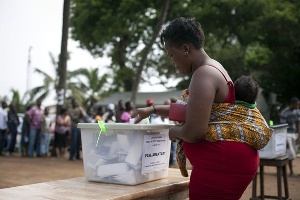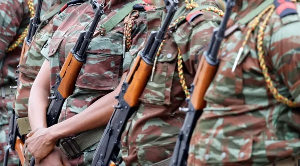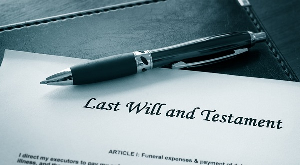The Electoral Commission of Ghana (EC) has proposed that the day for the country's general elections be changed from the conventional December 7, to November 7.
The EC even wants November 7 to be declared a national holiday in order to enhance and encourage increased civic engagement and foster a more robust democratic culture.
The EC also argues that the change in the date would allow for adequate time to ensure a smooth transition to the next government on January 7 after the election.
Though it might be unrelated, this proposal of the EC appears to be doing the bidding of the Seventh-day Adventist Church (SDA), which has petitioned the Electoral Commission and the Attorney General to change the voting day for the 2024 general elections since it falls on a Saturday, which conflicts with the Sabbath day of the church - a holy day they dedicate to the worship of God.
They proposed the 1st or 2nd Tuesday of November as an alternative, aiming for a more inclusive democratic process that respects the voting rights of all citizens.
The church's leadership emphasized the need for the bill to be sponsored by the Office of the Ministry of Justice and Attorney-General (Executive) due to its nature.
In their statement, the SDA said, "It is the considered view of the Church that this bill should be sponsored by the Office of the Ministry of Justice and Attorney-General (Executive) because of its nature. Hence, the request for this meeting with the Honourable Minister in that regard."
But is the appeal by the church justified? Has there been a precedence? And what precedence would this new suggestion be setting if the SDA gets its wish?
What existed with past elections in Ghana?
History shows that there have been elections in Ghana on days regarded as ‘holy days’ by some religious groups in the country, including Muslims (Friday), as well as Catholics and Pentecostals (Sunday), who constitute almost 80 percent of Christians in Ghana.
In fact, the 2008 general elections was held on December 7, 2008, even though it fell on a Sunday, a day that an overwhelming majority of Christians in Ghana regard as a holy day dedicated to the worship of God.
Similar objections were raised by Christians in 2008, but the then Electoral Commissioner, Dr Kwadwo Afari Djan, insisted that the day for the election cannot be changed, saying "I don't know anything that will change the December 7 date."
In 1996, the second general elections of the 4th Republic of Ghana was held on a Saturday, leading to protestations by members of the SDA who contended that the day fell on their Sabbath.
This dilemma on election day raises serious questions about responsibility to the state and religion.
Some Christians and Muslim groups are of the view that judging by the fact that Ghana is considered a religious country, with church activities dear to many people, voter turnout could be low and the elections might turn out not to be the true reflection of the views of the people.
GhanaWeb contribution:
The only solution to this may possibly be to have an election week and not an election day so that a day can be set within the week which does not fall on a weekend or a Friday.
Because even if the EC proposal of a holiday on November 7, in the instance that the day is accepted as the new election day, it would one day certainly fall on a weekend or a Friday which are ‘holy days’ for the various religious bodies in Ghana and is likely to affect turnout during the elections.
BAI/OGB
You can also watch the latest episode of Everyday People on GhanaWeb TV below:
General News of Friday, 26 January 2024
Source: www.ghanaweb.com
Faith and Ballots: EC's calendar shift and the unsettling impact on religious observance
This young man believes education is not key to prosperity | Everyday People
This young man believes education is not key to prosperity | Everyday People
0 seconds of 13 minutes, 4 secondsVolume 90%
Press shift question mark to access a list of keyboard shortcuts
Keyboard Shortcuts
Shortcuts Open/Close/ or ?
Play/PauseSPACE
Increase Volume↑
Decrease Volume↓
Seek Forward→
Seek Backward←
Captions On/Offc
Fullscreen/Exit Fullscreenf
Mute/Unmutem
Decrease Caption Size-
Increase Caption Size+ or =
Seek %0-9













